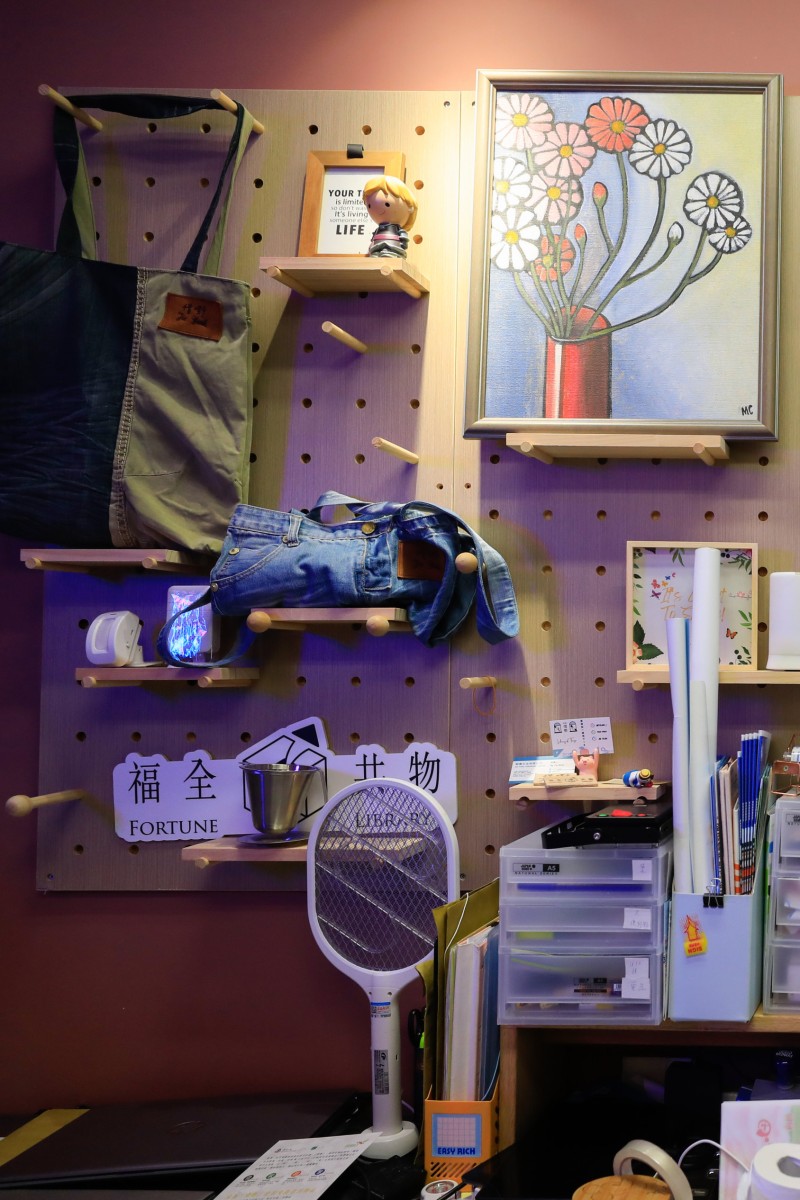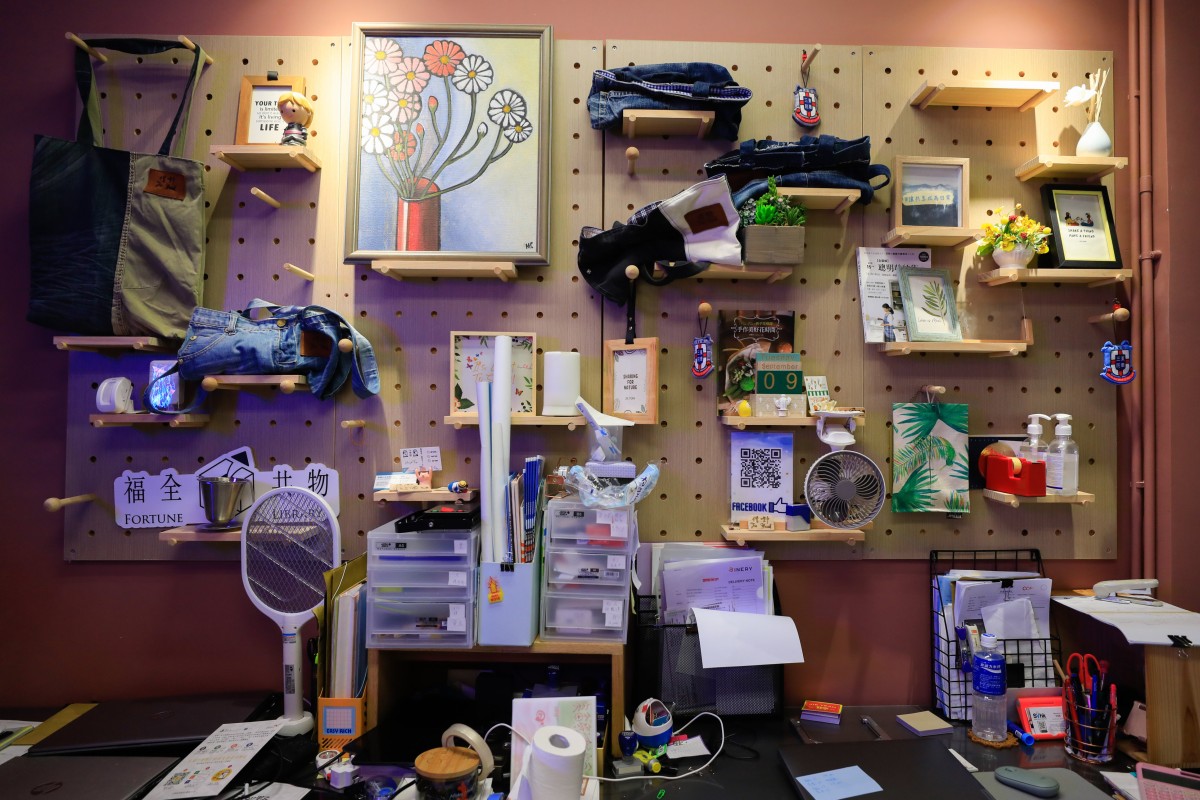
- In hopes of bringing Hongkongers together, this borrowing centre in Tai Kok Tsui has everything from board games and sewing machines to home appliance repair classes
- Every week, Talking Points gives you a worksheet to practise your reading comprehension with questions and exercises about the story we’ve written
 At Fortune Library Jie Yeah, members pay nothing to borrow from the shop’s stock of more than 200 items. Photo: Xiaomei Chen
At Fortune Library Jie Yeah, members pay nothing to borrow from the shop’s stock of more than 200 items. Photo: Xiaomei ChenIn Hong Kong’s vibrant Tai Kok Tsui district, Fortune Library Jie Yeah’s 230 sq ft shop is like a library, though it has no books for visitors to borrow.
Instead, its shelves hold a range of useful items, such as board games, electric drills and sewing machines.
Opened last September, Jie Yeah – a transliteration of a Cantonese phrase meaning to lend and borrow – is an experimental project operated by the Tung Wah Group of Hospitals.
Karen Law Sau-ying, who works for the charity and manages the borrowing centre, shared it was inspired by the Library of Things, a UK social enterprise where people can borrow items they need.
“Why buy when you can borrow?” asked the social worker. “We want to see if we can roll together all the infrequently used things in one place and bring them back to the community, to optimise its value and help more people.”
Why this Hong Kong shop sells nothing – it’s just a place to rest and read
Shelves filled by the community
When Jie Yeah first launched, there were only a few items brought by the staff.
“We did not buy anything to fill the shelves as we wanted to encourage Hongkongers to donate and share their unwanted items,” Law explained.
To rally support, the team created a wish list of about 50 things they needed and posted it on Facebook. In three months, they had received almost every item.
The shop currently has more than 900 members who donate to and borrow from a stock of over 200 items, ranging from toys to electronics and kitchen appliances. Law said the shop would welcome anything as long as it was clean and functional.
Those who want to borrow things must fill out a Google Form and show that they are aged 18 or above.
Each item carries dreams new and old
“Every day, when I open the door of Jie Yeah, there are so many unexpected people and things that come to us,” said Law, adding that what impressed her most was how the place could connect strangers.
Instruments are a common donation, as they often come from children who give up learning them. One time, Law recalled an old man who came to borrow a guitar to fulfil a dream he had since he was young.
One of the shop’s most valuable items is a professional digital camera set, from an elderly person who could no longer carry the heavy equipment. Another retired old man borrowed the set to learn photography in his free time.
Once, the staff received an old model of a sewing machine, and they were clueless about how to turn it on. Suddenly, an old lady, who was passing by the shop, came in to offer assistance. She even left her contact information so they could reach her if they needed more help with sewing.
Hong Kong teen shares how she opened her own used book store
Sharing skills, building connections
“More than access to stuff, we hope to build a close-knit community by empowering people to share their knowledge and ideas to help each other,” said Law.
“Our ultimate goal is to explore the relationship between people, objects and community.”
To facilitate the exchange of knowledge, Jie Yeah has organised about 50 volunteers, who lead different activities and workshops, such as sewing classes, home appliance repair, and handicrafting workshops for women living in transitional housing.
“Some of the volunteers come from Hong Kong Island or Tung Chung. Even though they are not part of the neighbourhood, they join us because they agree with our vision,” the social worker shared.
Ahead of Halloween, Jie Yeah is calling for people to donate festive decorations, as well as contacting different shops in the district to put together a trick-or-treat event for children. The shop hopes this will help build stronger ties between residents and businesses.
“Working here [Jie Yeah] sometimes makes me feel nostalgic for the good old days of Hong Kong when people would freely knock on the next door to borrow things,” Law reminisced.
“We hope that even without our shop, people will still help each other out. As long as you are willing to share, everyone’s home can be a place for people to jie yeah.”
Click here for a printable worksheet and interactive exercises about this story.
